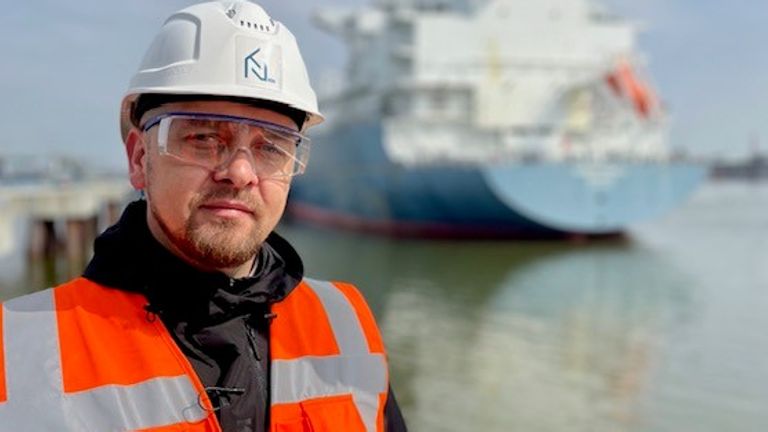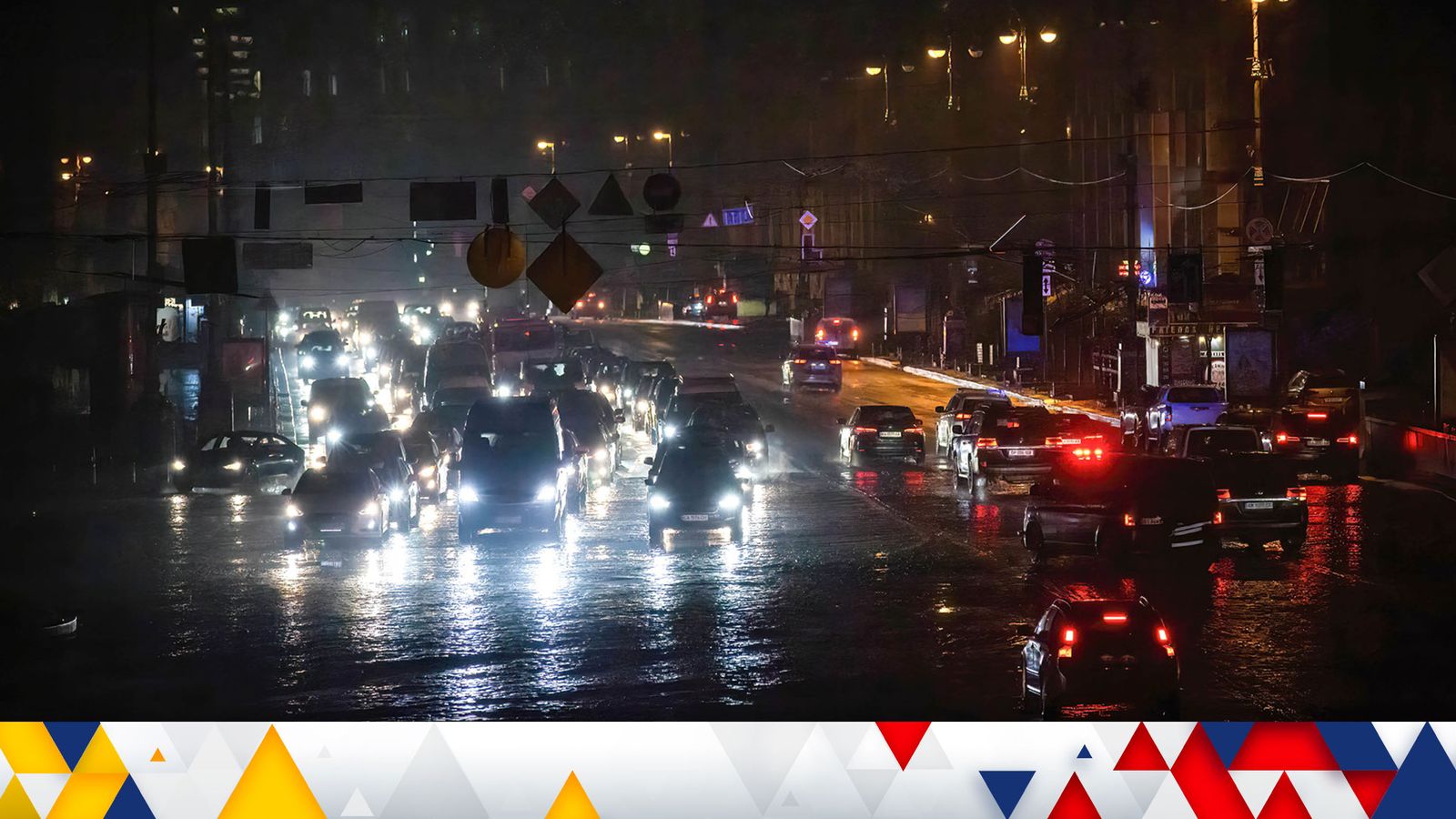[ad_1]
In the Baltic Sea, on a ship named Independence, Lithuania first launched its quest to break away from Russian energy.
The floating gas platform allows them to receive liquid natural gas (LNG).
LNG is gas chilled to -160C so it becomes a liquid which is currently being delivered from the US, allowing Lithuania to break the reliance on pipelines from Russia.
“I feel proud, first of all, that we did it on time, and I, of course, regret a bit that only this region was caring about security of supply and energy independence,” says Darius Silenskis, CEO of Klaipedos Nafta which operates the LNG terminal.
After Russian President Vladimir Putin’s forces invaded Ukraine, Lithuania was the first European Union member to announce it was stopping all Russian gas imports.
“From this month on – no more Russian gas in Lithuania,” the country’s president tweeted in April. “If we can do it, the rest of Europe can do it too!”
It has since secured total energy independence from Russia while many European nations are still scrambling for alternatives.
EU leaders will meet in Brussels on Monday and Tuesday to discuss the war in Ukraine.
The elephant in the room is the proposed embargo on Russian oil which still hasn’t been agreed.
It’s reported EU countries are now negotiating a watered-down plan which would ban seaborne shipments of Russian oil but delay sanctions on oil delivered by pipeline to win over Hungary and other landlocked member states.
On Thursday, President Zelenskyy criticised those delaying the sanctions, noting that nearly €1bn a day was being paid by Europe to Russia for energy.
“Look at the number of weeks the European Union has been trying to agree on a sixth package of sanctions against Russia,” he said. “Where did those who block the sixth package get so much power?”
Deep distrust of Russia
Lithuania’s breakaway from Russian energy did not happen overnight.
Tired of Kremlin blackmail, rising prices and threats to supplies, the government began working on a solution more than 15 years ago.
History has also helped shape policy.
There is a deep distrust of Russia after more than 50 years of brutal occupation by the then Soviet Union.
No family was left unscathed.
“We know how KGB institutions have been working, we know how disruptions of energy supplies can be applied. So therefore, we have a living memory of the strategies that Russia has been applying,” explains Jurgita Silinskaite-Vensloviene, head of LNG commerce at Klaipedos Nafta.
Read more:
Lithuanians stock up for ‘hybrid’ war with Russia
This experience has prompted massive public support of Ukraine since the war broke out.
Lithuania’s parliament designated Russia a terrorist country and labelled its actions as genocide.
It has repeatedly urged other EU countries to follow its lead and stop buying the Kremlin’s energy.
“It is necessary to understand that buying Russian energy sources means that you finance the war,” says Albinas Zananavicius, Lithuania’s vice energy minister.
“You have to choose sides and choosing the wrong side in history is a very big damage for your future, which will in turn make your country less attractive for investments.”
Subscribe to Ukraine War Diaries on Apple Podcasts, Google Podcasts, Spotify and Spreaker
I ask why he thinks Lithuania managed to read the signs and start moving away from dependence on Russian power years ago but other European powers did not?
“Because it is very convenient to have cheap energy,” he replies. “Price was an important thing. Another thing was that Europe had too many illusions about Russia. We never had those.”
But Lithuania’s power game is not over.
It is now working towards complete energy independence to ensure safe and stable supplies into the future.
[ad_2]









